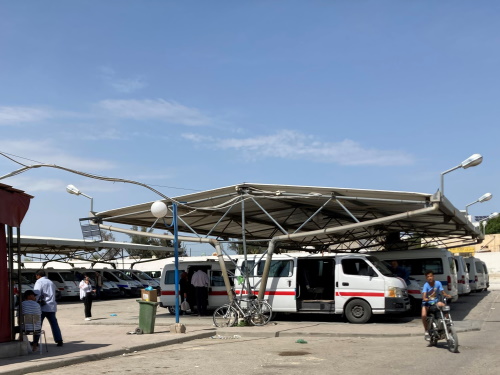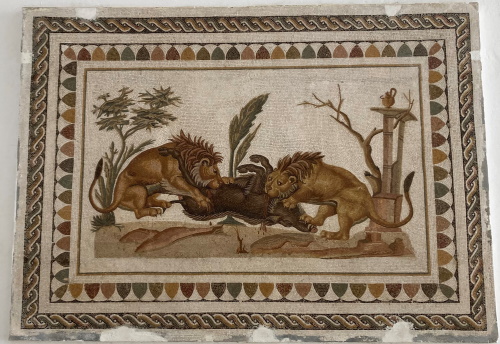Blog Countries
Top Tips for Tunisia
I had always been hesitant about going to Tunisia, it seemed boring and geared to package holidays for the masses, but I enjoyed it a lot more than I had expected. What it lacks in originality (I would be hard-pressed to name anything typical Tunisian), it makes up for it by just delivering it all well at a relatively low cost. I visited all of its 8 current WHS within a week, at an average all-inclusive cost of 117 EUR per WHS. Please find below my Top Tips for Travelling to Tunisia as a WH Traveller.
1. A little bit of French goes a long way
My French isn’t good, but right when I started using it in my interactions with the Tunisians I was taken by the friendliness of random shop owners, ticket sellers, and restaurant staff. People are much less comfortable in English and will look at you as if you’re from another universe. In French, they will make small-talk and smother you in helpful directions.
2. Louages are the way to go
The louage is Tunisia’s gift to the world’s public transport. It’s an improved version of the marshrutka that you encounter in the former Soviet countries: a minibus that functions as a shared taxi. In Tunisia, they don’t take more people than there are seats, prices are fixed (set by the government) and you buy the ticket at a ticket window. The minibusses drive from A to B, from the louage station in Sousse to the one in Tunis for example, and usually don’t stop along the way (or maybe once near the city center). Trains are much slower, prone to delays, and serve only part of the country.
3. Include the Northern Loop
The 3 WHS in northern Tunisia (Dougga, Kerkuane, Ichkeul) are a bit harder to reach than the other 5. For sure by public transport, but possibly also by rental car, they may take a day trip each. The landscape here is much greener though than in the rest of the country, and here you will understand why the region was seen as the breadbasket and olive grove for the Roman Empire. It still is a very rich agricultural area. My best drive was the road between Dougga and Bizerte, with quiet roads and great scenery, including at the end the views on Lake Ichkeul.
4. Don't let the political-economic situation scare you
If you read The Economist or similar global affairs news sources, you may get the impression that Tunisia is on the brink of total collapse and becoming the next Lebanon or Sri Lanka – the Parliament has been sent home by the President, and Tunisia is a big wheat importer from Russia and Ukraine. It has been prone to social unrest in the past and there were a number of deadly terrorist attacks between 2002 and 2015. On the positive side, however, it’s a small and culturally homogenous country, much more secular than its neighbours and with a longstanding democratic and civilized backbone. On the ground, in May 2022, it felt totally safe and welcoming, without any signs of food shortages. Travelling around as a solo female traveller also is no issue at all: you’ll meet single Tunisian women using public transport and hotels all the time.
5. Breakfast as the food highlight of the day
While evening meals can be good as well, if you know to find a good restaurant, Tunisia’s food highlight for me was breakfast. You certainly do not start the day here on an empty stomach. In fact, the breakfasts in the midrange hotels where I stayed were always so great and abundant that lunch could easily be skipped. Usually, it was a mix of French and Tunisian dishes, from croissants and pain-au-chocolat to several kinds of fresh Tunisian bread. Accompanied by fig jam, olive tapenade, local cheeses, and even some early morning spicy harissa. Eggs for those who like them. And then fresh strawberries and yogurt for dessert. Or should I take that piece of chocolate cake?
Els - 29 May 2022
Comments
Clyde 29 May 2022
thanks for the useful tips, especially regarding the North!


